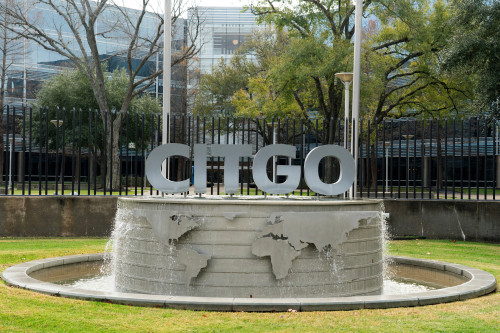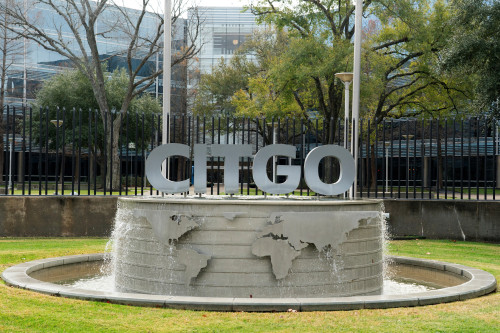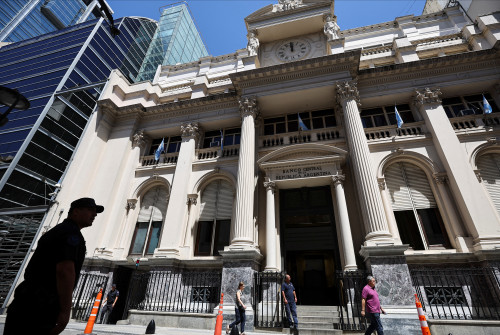NEW YORK (Reuters) – U.S. consumer prices rose moderately in May, leading to the smallest annual increase in inflation in more than two years, though underlying price pressures remained strong, supporting views that the Federal Reserve would keep interest rates unchanged on Wednesday while adopting a hawkish posture.
The Consumer Price Index (CPI) increased 0.1% last month as gasoline prices fell, the Labor Department said on Tuesday, after rising 0.4% in April. In the 12 months through April, the CPI climbed 4.0%. That was the smallest year-on-year increase since March 2021 and followed a 4.9% rise in April. Economists polled by Reuters had forecast the CPI gaining 0.2% last month and increasing 4.1% year-on-year.
Futures tied to the Fed’s policy rate fell after the data, as traders firmed up bets that the U.S. central bank will decide Wednesday to forgo an 11th straight interest-rate hike and keep the benchmark rate at 5.00%-5.25%.
MARKET REACTION:
STOCKS: U.S. stock index futures extended a bit higher and were last up 0.33%, pointing to a firm open on Wall Street BONDS: U.S. Treasury yields fell, with 2-year note last at 4.51%, and the 10-year note at 3.697%FOREX: The euro extended to a 0.52% gain against the U.S. dollar, while the dollar index was off 0.444%
COMMENTS:
STUART COLE, CHIEF MACRO ECONOMIST, EQUITI CAPITAL, LONDON
“The expected softening in US CPI has materialized, with both the core and headline monthly readings printing in line with expectations. And the sharp fall in the annual headline rate means annual price increases are now growing at their slowest pace since March 2021. The numbers are probably enough to see the Fed keep rates on hold this month, as they have suggested. But interestingly the market is still pricing in an approximate 80% chance of rates being hiked again in July, which is something of an odd position: if rates do indeed need to be tightened further, then you would expect them to be done now rather than in a month’s time.
“But I think there are two interesting stories here. Firstly, it is worth noting that the BLS is suggesting that shelter costs were the largest factor behind the headline 0.1% increase in the headline monthly reading. Shelter costs – ie rents – are the biggest services component of CPI and they have largely given up the gains made post-covid. It takes time for rent movements to appear in the CPI prints which suggests further downwards pressure on headline CPI is yet to appear. So a reason for suggesting that inflationary pressures are heading in the right direction and suggesting the FOMC may well yet be able to keep rates on hold for longer than the single month the market is currently pricing. But against this is the fact the core monthly rate remained unchanged at 0.4%, a figure that is too high to be compatible with a 2% inflation target and very much highlighted by the much more modest fall in the annual core inflation rate. In itself, you could easily see the FOMC being able to use this figure to justify another 25bps rise.
“So, overall, I think the Fed’s message for this month, when viewed in light of today’s data, has simply added to the uncertainty about the immediate direction of US monetary policy. And the data releases between now and July’s FOMC meeting could well see some sizeable repricing of expectations for the July meeting.”
JOSEPH LAVORGNA, CHIEF U.S. ECONOMIST, SMBC NIKKO SECURITIES, NEW YORK
“It was as expected. The headline is moving a lot lower because of weaker food and energy prices, which impact inflation expectations.
“The fact that the headline is falling sharply, as history suggests, is quite positive. The stickiness on the core is largely a function of rents, not surprising given the inertia with which rents move and also the fact the way that BLS does the calculation.
“These numbers don’t change that if the Fed is going to continue rate hikes after an expected pause, it’s going to be because either broad GDP trends reaccelerate, or the labor market doesn’t show any signs of loosening.
“It looks like the trend is just moving in a slower pace, but we expect that to continue. If it doesn’t, then that’s where Fed tightening comes back into play. I’m not sure it’s going to be driven by inflation per se, because again, the core is going to stay sticky for a while. It’s really going to be more the real side economy that will dictate whether they re-enter and hike again later this year.”
PETER GARNRY, HEAD OF EQUITY STRATEGY, SAXO BANK, DENMARK
“If you look at what the market is pricing, no change tomorrow and then it is leaning in favor of a rate hike in July. The problem is that some of the FOMC voting members have said themselves you need sustained low inflation levels and for them to even begin contemplating cutting rates with inflation report like what we’re seeing today, I don’t think it’s possible for the FOMC to cut the policy rate this year. The only path from here that could lead to an interest rate cut this year would be if there is some crisis on our hands, something unexpected is happening to the economy.
The animal spirits that we are observing in the markets due to AI is also a risk that has come into the equation. I don’t think it’s a good thing to have equity markets on speculative fumes here.
BRIAN JACOBSEN, CHIEF ECONOMIST, ANNEX WEALTH MANAGEMENT, MENOMONEE FALLS, WISCONSIN
“Unlike the employment situation, which continues to defy expectations, inflation numbers came in consistent with expectations. Not only should the Fed skip tomorrow’s hike, they should just skip the entire meeting. The data ever so slightly tilts things towards this not just being a skip, but a full-blown hold.”
PETER CARDILLO, CHIEF MARKET ECONOMIST, SPARTAN CAPITAL SECURITIES, NEW YORK
“The data is in line, which is good news, especially in terms of inflation year over year, and you can see that the yields are coming down, and the dollar is coming down.”Markets are moving higher and stocks are also moving higher because this is good news for markets and it means the Fed will likely stay pat on rates, skip this month, and leave the door open for rate hikes in July based on data. So good news overall but still data dependent.”
(Compiled by the Global Finance & Markets Breaking News team)





